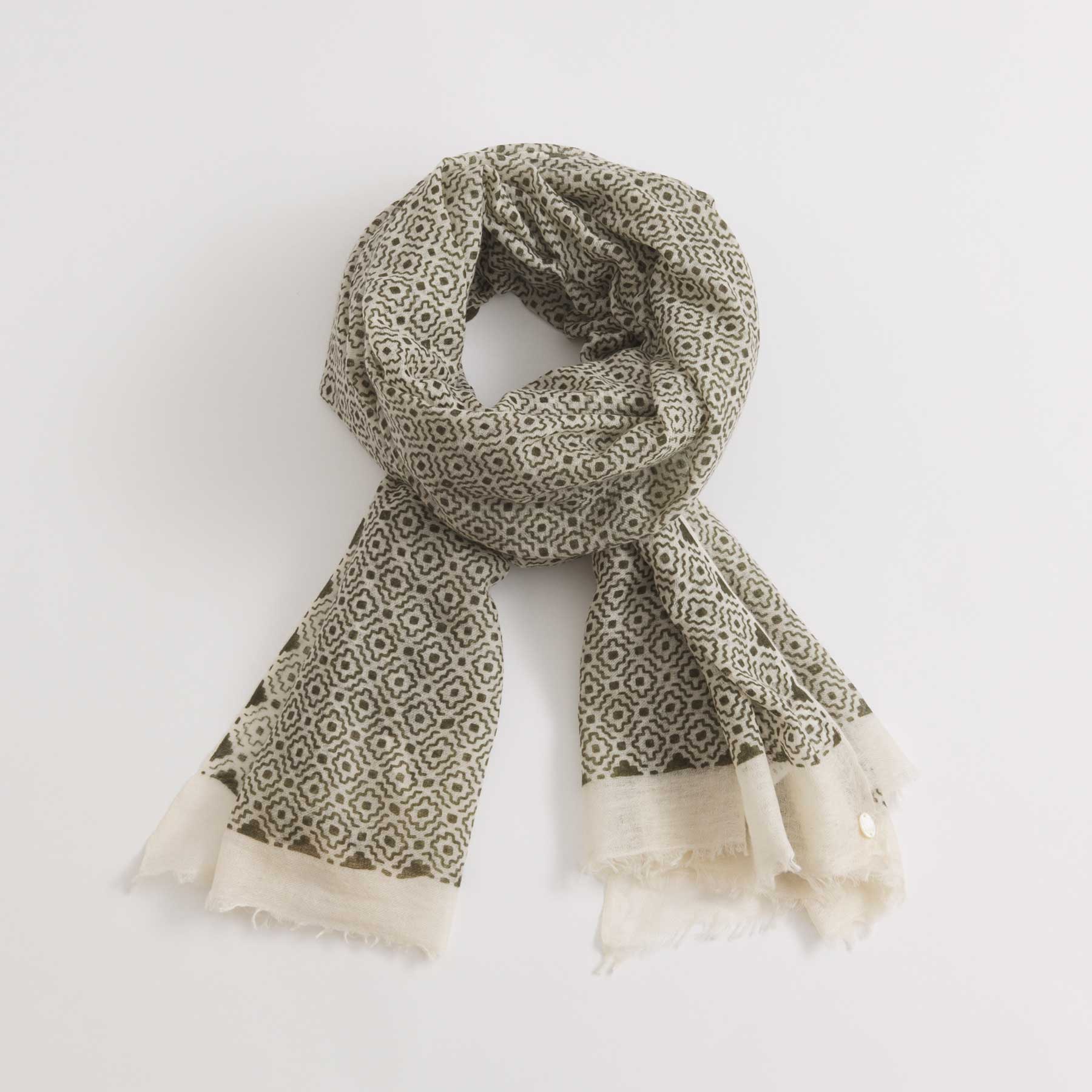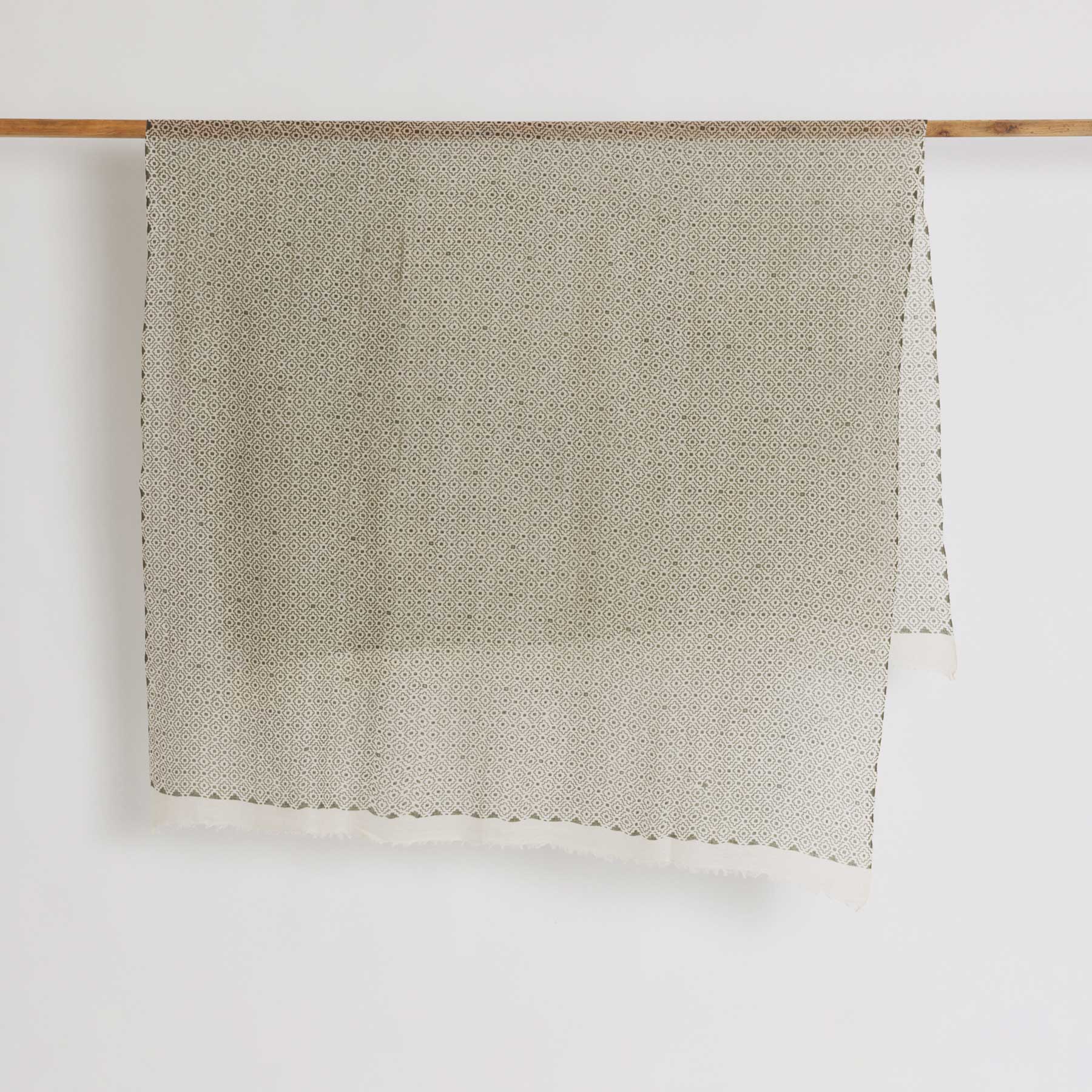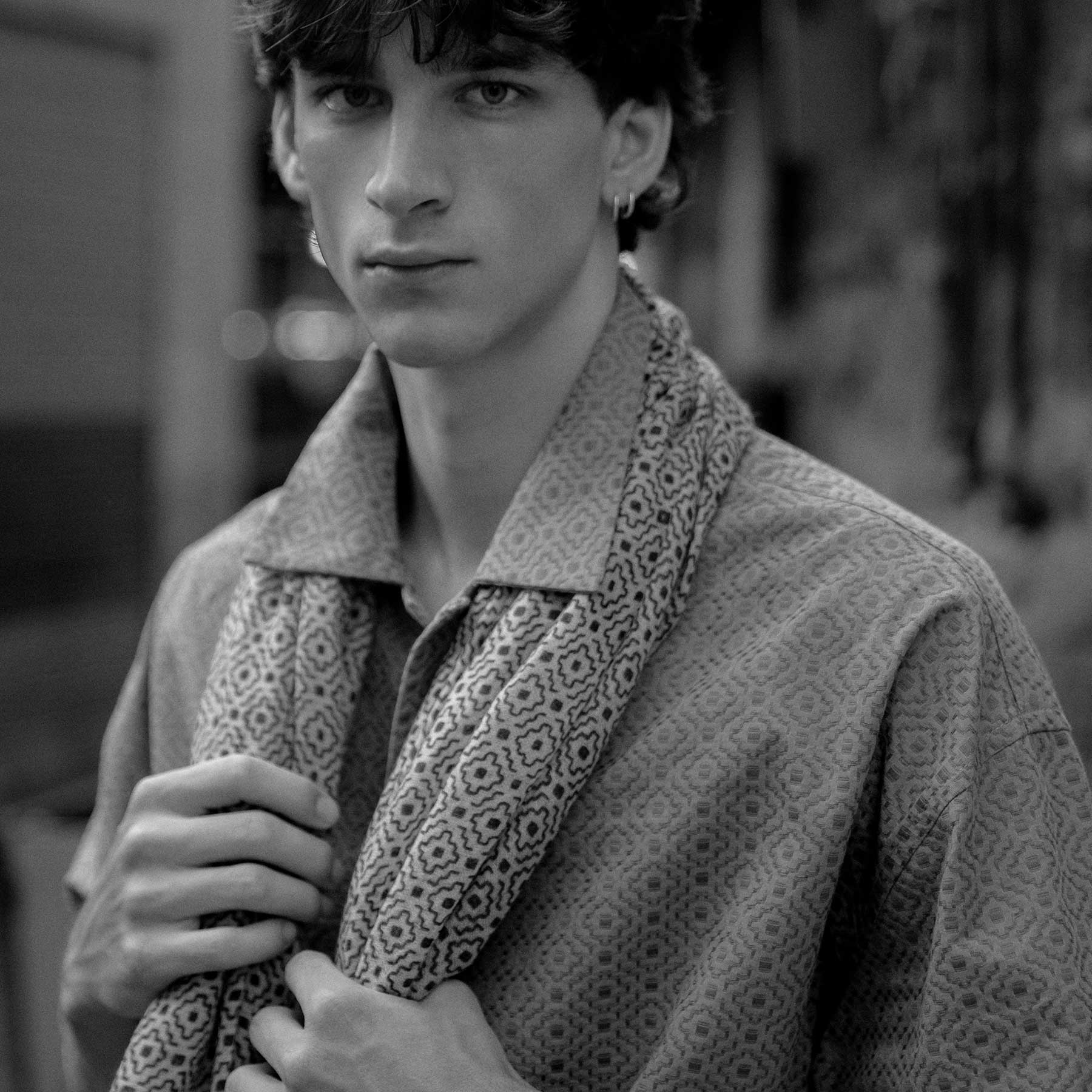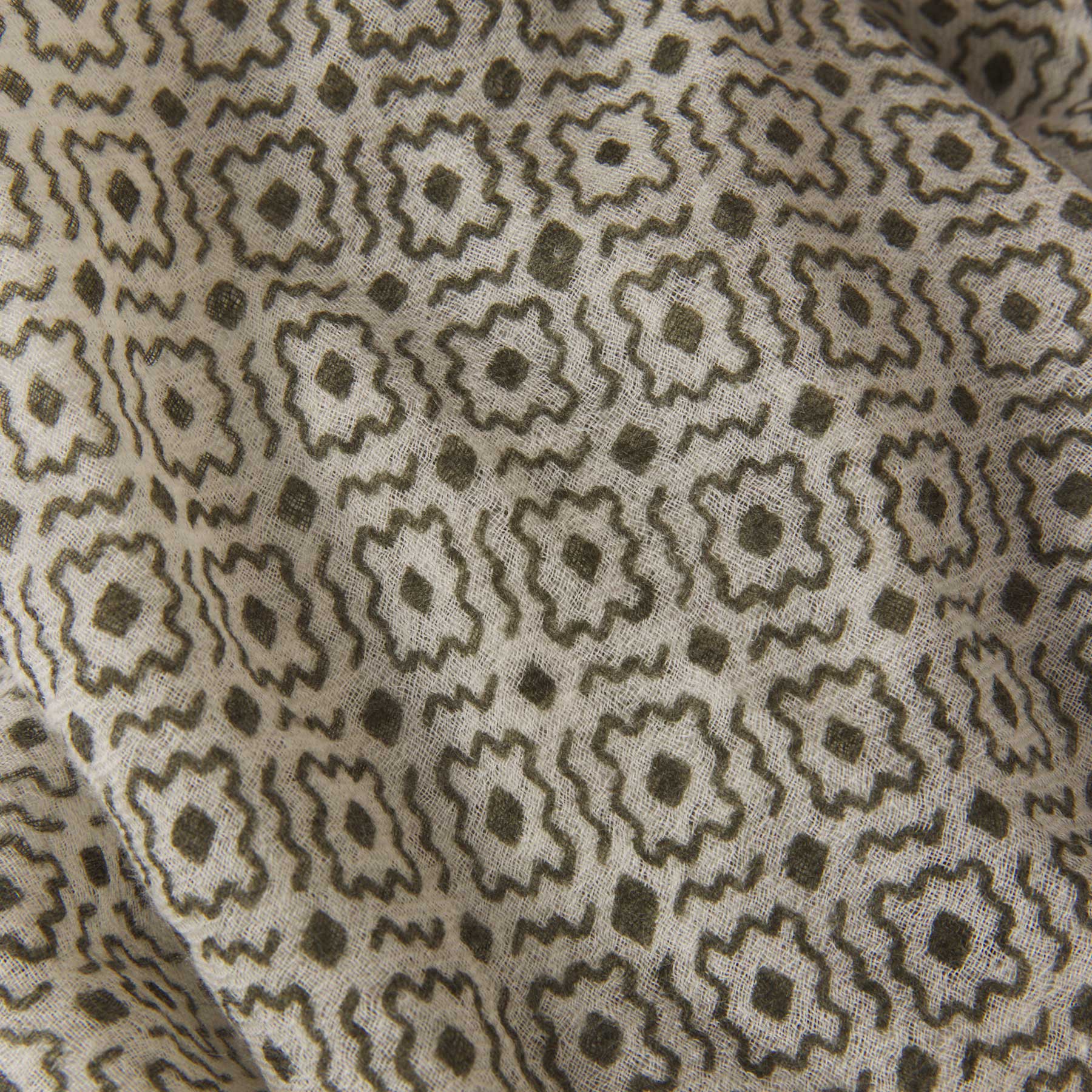



Felted Stole Addis Abeba
Material: 100% cashmere
Dimensions: approx. 200 x 125 cm (length x width)
Format
The friendly hunting Felted Stole is hand-woven from 100% cashmere in our manufactory in Nepal and then felted. Its dense structure softens the sensitivity of this fragile material, which is printed with a hand screen.
Artwork
Like a hidden language that only those dedicated to detail will understand, the Addis Abeba print presents a decorative floral pattern that at first seems subtle and delicate but then reveals a powerful depth: it means New Flower and is the name of the cosmopolitan capital of Ethiopia. The contours of the miniature blossoms are light and gentle, yet with an intense natural sophistication. Addis Abeba is a quiet companion for moments that demand a touch of luxury without forcing it.
Choose options






